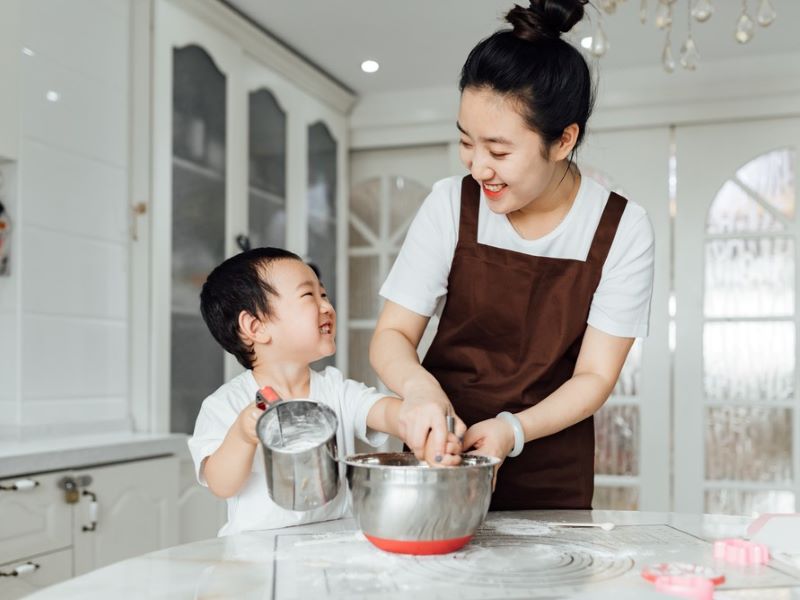Maid employment has become a crucial element in Singapore’s societal framework, offering vital support to families in managing their households. In a fast-paced, urban environment where dual-income families are the norm, the demand for domestic workers, particularly maids, has been on the rise. These workers, hailing mainly from countries such as Indonesia, the Philippines, Myanmar, and India, provide invaluable services ranging from cleaning and cooking to childcare and eldercare. The reliance on maids has grown as Singaporean families balance professional commitments with personal responsibilities, making domestic help a necessity rather than a luxury for many households.
One of the primary drivers of maid employment in Singapore is the country’s demanding work culture and high cost of living. With long working hours and increasing living expenses, many Singaporean families find it challenging to manage both household responsibilities and professional obligations. As a result, employing a maid becomes essential to maintain a work-life balance. These domestic workers often assume roles such as caring for children, cooking meals, and cleaning, giving working parents the time and energy to focus on their jobs. In homes with elderly members, maids also act as caregivers, providing constant supervision and support, which allows family members to pursue their daily routines without compromising on the care of their loved ones.
The Singapore government has established a robust legal framework to regulate maid employment and protect the rights of both employers and maids. This regulatory structure, overseen by the Ministry of Manpower (MOM), ensures that maids have access to fair treatment, proper wages, and necessary rest periods. Employers are responsible for the well-being of their domestic workers, which includes providing medical insurance, regular rest days, and suitable living conditions. Additionally, there are training programs in place for domestic helpers to ensure they are equipped with the skills needed to fulfill their duties efficiently. These policies aim to create a balanced working relationship, promoting respect and professionalism between both parties.

While singapores top maid agency brings many benefits, it is not without its challenges. Cultural differences often arise, as many domestic workers come from rural areas in their home countries, where social norms and lifestyle expectations differ significantly from those in Singapore. These differences can sometimes lead to misunderstandings between employers and maids, particularly when it comes to work habits, communication styles, or the expectations surrounding cleanliness and discipline. Many maid agencies in Singapore play a mediating role in bridging these gaps, offering support and counseling to both employers and workers to foster harmonious working relationships. Through training and guidance, both parties can adjust to their new roles and environments, helping to minimize conflicts.
In recent years, there has been a growing awareness of the importance of fair treatment for maids in Singapore. Advocacy groups and non-governmental organizations (NGOs) have been vocal about the need for better working conditions, fair wages, and increased protection against abuse. These efforts have led to several policy improvements, such as mandatory weekly rest days and measures to prevent worker exploitation. Employers are encouraged to treat domestic workers with respect and dignity, recognizing their contributions as valuable members of the household rather than just hired help. This shift in attitude is helping to improve the overall perception of maids in Singapore and is fostering a more supportive environment for them to work in.
The future of maid employment in Singapore remains bright, but it is clear that ongoing efforts are needed to ensure that the system works for both employers and employees. As Singapore’s population continues to age and the demand for caregiving services rises, maids will play an increasingly important role in supporting families. At the same time, policies must continue to evolve to ensure that maids are treated fairly, with ample protection under the law and opportunities for skill development. By recognizing the value of domestic workers and ensuring their welfare, Singapore can continue to create a system where both employers and maids benefit from a positive, respectful working relationship. This balance will be key to maintaining the country’s reliance on domestic help while fostering a more compassionate society.
In conclusion, maid employment in Singapore is more than just a convenience—it is an integral part of the nation’s social and economic structure. With the growing demand for domestic help, particularly in households with young children and elderly members, maids provide essential services that allow families to manage their daily lives more efficiently. While challenges such as cultural differences and fair treatment persist, the government’s regulatory framework and the increasing advocacy for workers’ rights have created a more structured and protected environment for domestic workers. As Singapore continues to develop, the role of maids will remain crucial, and efforts to improve their working conditions will benefit both employers and workers, ensuring a more harmonious future for all parties involved.



